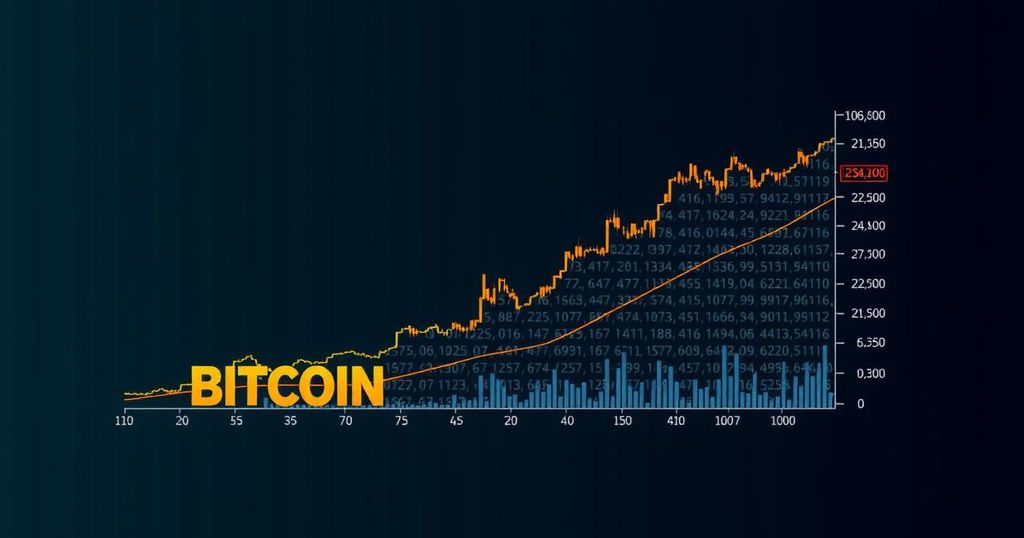Bitcoin Falls Below $57K Amid Economic Concerns and Sell-on-Rise Trend
Bitcoin’s value has dipped below $57,000, reversing the gains made on Wednesday, as investor sentiment remains cautious regarding the resilience of the U.S. economy. This drop is symptomatic of a recurring ‘sell-on-rise’ behavior among investors amidst a backdrop of economic uncertainty.
On Thursday, Bitcoin (BTC) declined over 2%, settling at approximately $56,700 after failing to maintain a level above $58,000 the previous day. This decline follows a peak exceeding $65,000 on August 25, demonstrating a notable downtrend characterized by short-lived and modest price recoveries. Analysts have highlighted this as indicative of a prevailing sentiment to liquidate positions as prices rise.
Supplementary cryptocurrencies, including ether (ETH), XRP, and TON, also retraced gains made on Wednesday, maintaining a largely stable position over a 24-hour period, according to data from CoinDesk. Meanwhile, the CoinDesk 20 Index (CD20), which gauges the broader cryptocurrency market, showed a slight increase of 0.9%.
Valentin Fournier, an analyst at the digital assets advisory firm BRN, noted that the underlying fear of a potential recession is likely influencing these market behaviors. “Recent economic reports suggest that recession risks should not be disregarded,” Fournier remarked. He referred to the ISM manufacturing index, which fell short of expectations, and the recent Job Openings and Labor Turnover Survey (JOLTS) published by the U.S. Bureau of Labor Statistics. This survey indicated 7.67 million job openings in July, which was below market expectations of 8.1 million, reflecting a broader trend of weakening economic indicators.
Julia Pollak, chief economist at ZipRecruiter, characterized the Federal Reserve’s recent Beige Book – a compilation of economic commentary – as particularly negative, highlighting a ‘slowing, slackening labor market.’ Furthermore, the ISM manufacturing PMI indicated ongoing contractions in economic activity as of August, exacerbating fears that previously impacted risk assets, including cryptocurrencies.
Despite weaker economic data provoking speculation regarding potential Federal Reserve interest rate cuts, Bitcoin’s prices have not stabilized, with analysts suggesting this trend may foreshadow broader weakness in traditional risk assets. Alex Kuptsikevich, a senior market analyst at FxPro, asserted that the ongoing weaknesses in cryptocurrencies could be an early warning sign for other markets. He observed, “The drawdown of Bitcoin continues its downward trajectory, having declined in nine out of the last eleven days, testing levels not seen in four months.”
In conclusion, as Bitcoin struggles to regain its footing amid a climate of economic apprehension, investors may wish to measure their exposure to cryptocurrencies carefully. The uncertainties surrounding the U.S. economy may pose risks not only to Bitcoin but to broader market segments as well. Stakeholders are recommended to stay informed and consider adjusting their investment strategies accordingly.








Post Comment